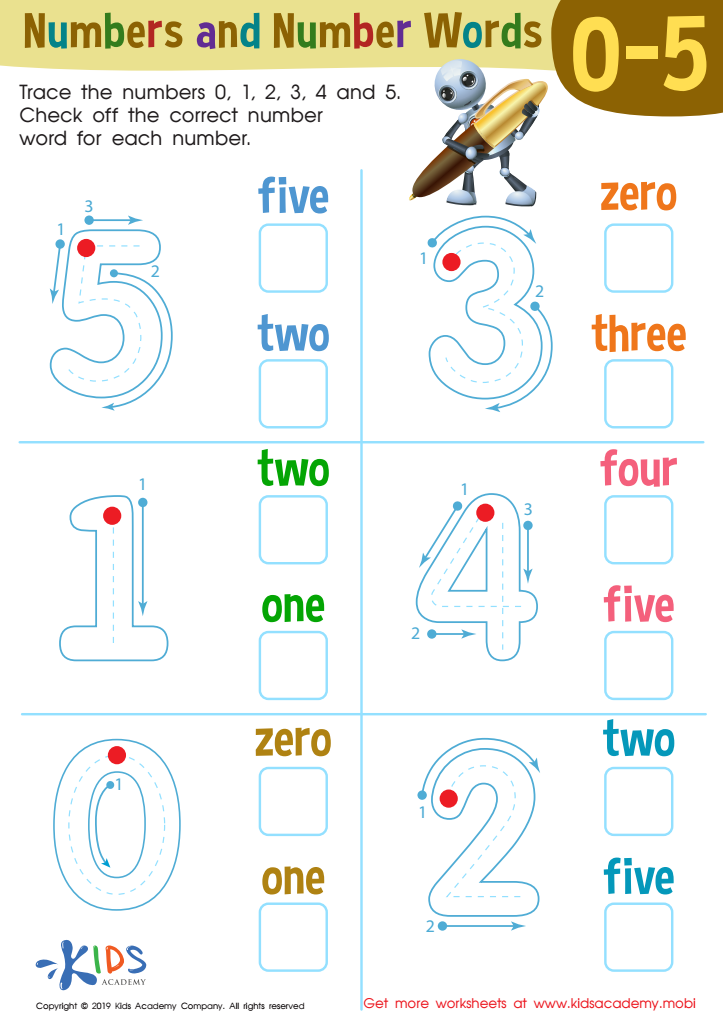Easy Tracing worksheets activities for Ages 7-8
3 filtered results
-
From - To


Numbers and Number Words Worksheet


Drawing with a Little Monster Worksheet


Easy Tracing worksheets activities serve as a fundamental stepping stone in the development of young learners and are crucial for several reasons. Firstly, they lay the groundwork for handwriting skills, which are essential for academic success. By engaging in Easy Tracing worksheets activities, children learn to control their pencil with precision, preparing them for the challenges of writing letters, numbers, and eventually, sentences.
Moreover, these activities significantly contribute to the enhancement of fine motor skills. The act of tracing shapes, lines, and letters requires a level of dexterity and coordination that young children are just beginning to develop. As they follow the paths laid out on these worksheets, they strengthen the small muscles in their hands and fingers, improving their grip and control over writing instruments.
Cognitive development is another area where Easy Tracing worksheets activities prove their worth. They introduce children to the concept of following visual instructions, recognizing patterns, and understanding the spatial orientation of shapes and letters. This early exposure to the basics of geometry and spatial awareness sets a strong foundation for more complex mathematical concepts in the future.
Additionally, these worksheets foster independence and confidence in young learners. As children complete tracing tasks, they experience a sense of accomplishment that boosts their self-esteem and encourages them to tackle more challenging activities. This positive reinforcement is crucial in the early stages of learning, promoting a love for learning and an eagerness to explore new concepts.
Easy Tracing worksheets activities also offer a versatile and accessible way for children to practice these skills. They can be used in a classroom setting, at home, or even on the go, making them a convenient tool for continuous learning.
In conclusion, Easy Tracing worksheets activities are not just about drawing lines on paper; they are a comprehensive educational tool that supports the development of handwriting, fine motor skills, cognitive abilities, independence, and confidence in young learners.
 Assign to My Students
Assign to My Students


.jpg)












